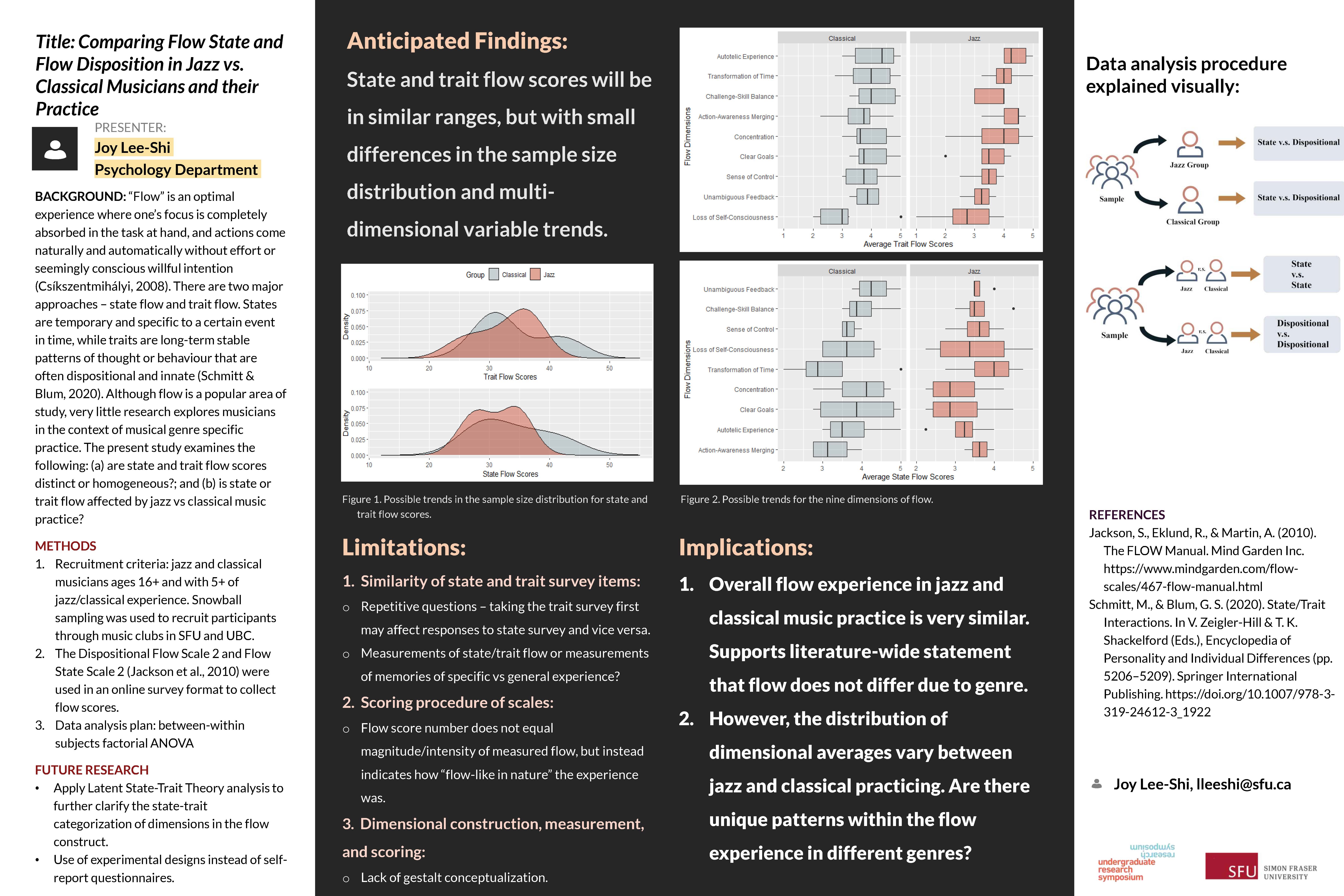A Pilot Study: Differences in Flow State and Flow Disposition in Jazz vs. Classical Musicians and their Practice
Main Article Content
Abstract
“Flow” is an optimal experience where one’s focus is completely absorbed in the task at hand, and actions come naturally and automatically without effort or seemingly conscious wilful intention (Csíkszentmihályi, 2008). There are two major approaches – state flow and trait flow. Although flow has been reported in many professions such as surgery and sports, musicians have been overlooked and understudied, especially in the context of musical genres and their practice.
The aim of the present study is to examine: (a) is there a difference between state and trait flow?; and (b) is state or trait flow affected by jazz vs classical music practice? About 70 participants within jazz and classical music ensembles will be recruited from UBC, SFU, and Vancouver Community College. Eligibility requirements include the following: 16+ years old, and five plus years of experience in jazz or classical music. The Dispositional Flow Scale 2 and Flow State Scale 2 will be administered (Jackson et al., 2010). A within-subjects design will compare state and trait scores for both types of musicians, given their preferred music domain. Additionally, a between-subjects design will compare state flow scores between jazz and classical musicians and likewise for dispositional flow. It is predicted that there is a difference between state and dispositional flow, and that scores will be similar between jazz and classical musicians. Given that flow is reported to be an enjoyable and performance-enhancing experience, a greater understanding of the relationship between flow and musicianship may contribute to improved performance and practice.
Faculty Supervisor: Dr. Robert Ley, Department of Psychology, Simon Fraser University
Article Details

This work is licensed under a Creative Commons Attribution-NonCommercial-NoDerivatives 4.0 International License.

